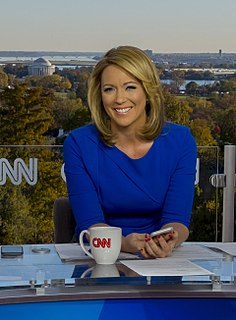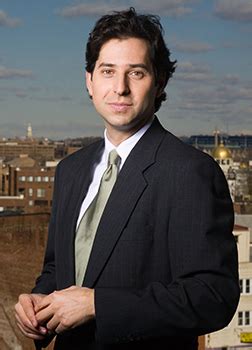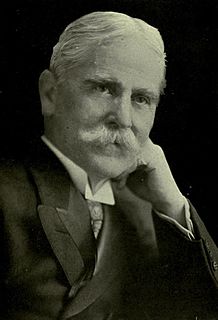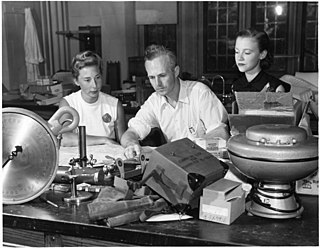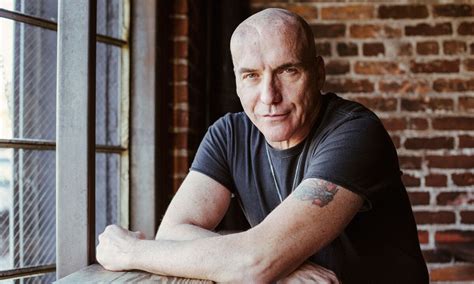A Quote by Brooke Baldwin
All I know is what I do each and every day and what we do here at CNN, which is all about the facts, asking tough questions, challenging leaders and our own leadership in this country.
Related Quotes
If you don't put the spiritual and religious dimension into our political conversation, you won't be asking the really big and important question. If you don't bring in values and religion, you'll be asking superficial questions. What is life all about? What is our relationship to God? These are the important questions. What is our obligation to one another and community? If we don't ask those questions, the residual questions that we're asking aren't as interesting.
I think it's very important to be able to hear from our public leaders in ways that they can't entirely orchestrate, seeing them speak live and unscripted and take questions that they themselves haven't arranged ahead of time. I think this is a way in which citizens who are deciding what they think of their leaders who govern in their name, this is one of the ways in which they can evaluate how they feel about the quality of the leadership.
I want everyone to know that Russia in general and the Russian leadership, it is something effective and properly functioning. That the country itself, its institutions, leaders are represented by healthy, capable people who are ready for cooperation with our partners in every single area: sports, politics, fight against modern threats. I have nothing but a positive feeling about it.
Democracy is not about trust; it is about distrust. It is about accountability, exposure, open debate, critical challenge, and popular input and feedback from the citizenry. It is about responsible government. We have to get our fellow Americans to trust their leaders less and themselves more, trust their own questions and suspicions, and their own desire to know what is going on.
Truthiness is tearing apart our country, and I don't mean the argument over who came up with the word. I don't know whether it's a new thing, but it's certainly a current thing, in that it doesn't seem to matter what facts are. It used to be, everyone was entitled to their own opinion, but not their own facts. But that's not the case anymore. Facts matter not at all. Perception is everything.
I would suggest two approaches to begin the leadership journey in earnest. First would be to ask oneself, in every interaction with others over the course of a single day: How can you best serve this person? Another approach would be to attempt, over the course of a single day, to reframe your declarative statements into questions. The thoughtful use of questions can be transformational. In my experience, most people find these exercises more challenging - and more rewarding - than they would have imagined.
We can each sit and wait to die, from the very day of our births. Those of us who do not do so, choose to ask - and to answer - the two questions that define every conscious creature: What do I want? and What will I do to get it? Which are, finally, only one question: What is my will? Caine teaches us that the answer is always found within our own experience; our lives provide the structure of the question, and a properly phrased question contains its own answer.
You're not a Black man. You're a human being in God's eyes. So when you sit down to talk to someone and you talk to them in really intelligent terms, you ask difficult questions, there's a militancy that's assigned to you without you asking for it, because you are simply judged by what you look like. If you're a white person asking the same questions, you'd be one of these CNN guys and say how brilliant he is. That doesn't work for you, because this is the world we live in.
Men who find themselves late are never sure. They are all the things the civics books tell us the good citizen should be: partisans but never zealots, respectors of the facts which attend each situation but never benders of those facts, uncomfortable in positions of leadership but rarely unable to turn down a responsibility once it has been offered . . . or thrust upon them. They make the best leaders in a democracy because they are unlikely to fall in love with power.
Beware of anyone who calls you bad names merely for asking honest questions. Beware of anyone who insists on reframing your sincere curiosity as a character defect. Beware of anyone who questions your motives while ignoring your facts. When someone calls you bad names merely for asking questions, it suggests they know the answer but are terrified to admit it.
